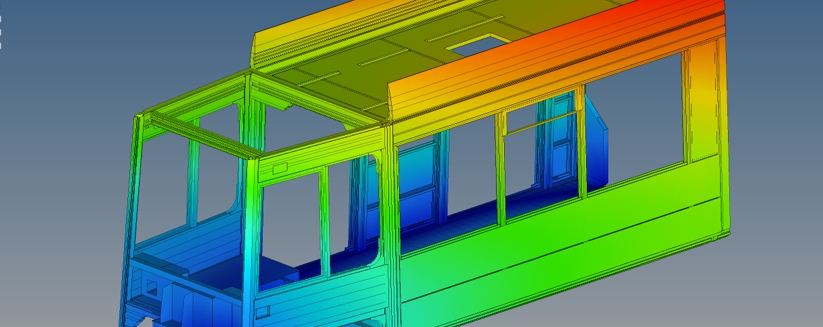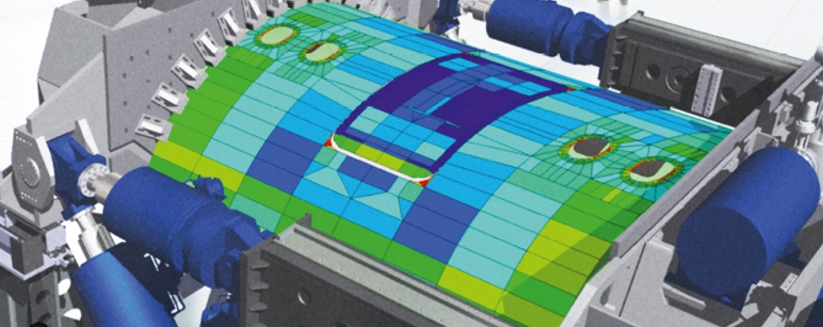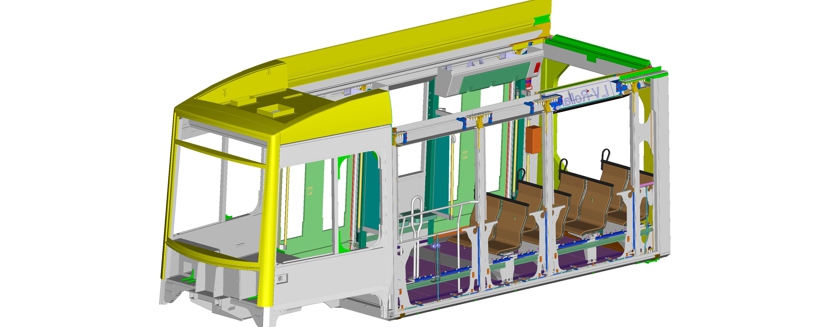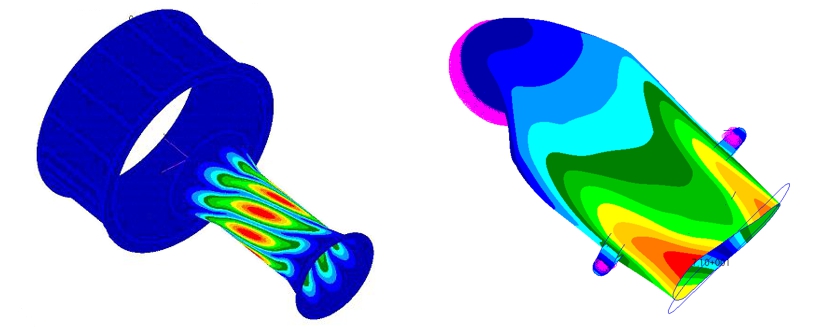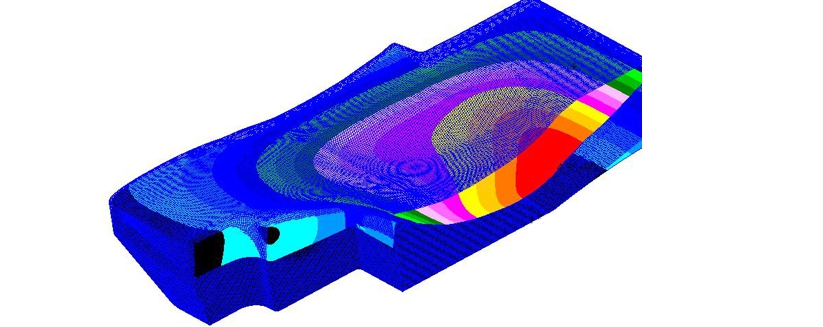Numerical Simulation and
strength evaluation
IMA Dresden offers engineering services throughout the entire development phase as well as during the use
of a product, taking the economic requirements for shorter production development times and innovative and
high-quality design with with better material efficiency and weight-optimised structures into account for
optimal flow of forces.
During the development phase, we make statements about the design of components and give you the chance to
compare different types of design. We make lifecycle assessments by establishing load assumptions, determining
concrete production process-dependent component strengths, and examining stress, deformation and stability.
We use computational and experimental findings relating to the operational and permanent strength to determine
how much dynamic stress a construction has to bear, which dimensions achieve the best strength values, and how
the natural Vibration and resonance behaviour affects the structural strength. We also calculate and assess the
lifespan. Our results have helped you to optimise your components at the development stage.
If necessary, we record stresses that occur during real use by conducting appropriate measurements, measuring runs
and continuous monitoring. Based on high-performance international software systems, IMA Dresden offers
comprehensive FEM and MKS analysis options and construction-related calculations.
Our portfolio
FEM analysis
Experienced calculation engineers from the fields of statics, operational strength and dynamics are on hand to optimise your product by scaling its mass and form on the basis of FE analysis. We determine stresses and deformations, examine the stability behaviour, obtain static, operational and permanent strength verifications, evaluate natural modes and resonances, and analyse and assess damage.
Static analysis
- Stresses and deformations (linear/materially or geometrically non-linear)
- Dents and stability
- Contact simulation with/without friction
- Material properties (isotropic/orthotropic, plastic/elastic/viscous, composites)
Fatigue strength analysis
- Determination of the temporal load profile and the load collective
- Verification of permanent, fatigue and operational strength following FE analysis
Dynamic analysis
- Natural frequencies and forms
- Transient processes
- Harmonic Analysis
Convenient data exchange via CAD interfaces (incl. Iges, Parasolid, Step, Acis, Pro/E) and FE interfaces (Nastran, Ansys, Marc, etc.).
Sample references in industry and research
- Static analysis, including static and dynamic strength verification and optimisation of vehicle assemblies and structures, e.g. overall structures, frames, drive and engine assemblies, and wheelset bearing housings.
- Strength and vibration calculations, including drive comfort, and static and dynamic basic studies of rail vehicle structures of different designs, e.g. steel, fibre composite materials, hybrid solutions
- Static and dynamic investigations of high-stress pulse testing units, incl. earthquake checks
- Static analysis of shell structures made of fibre composites, including non-linear dent examinations, e.g. front-opening hood for railways, aircraft fuselage shells, barrel and cupola shell structures.
Strength evaluations
IMA Dresden is there fore you, with high-performance technology, ready to analyse the stress and reliability of components and structures using the finite elements method and carry out strength tests.
We make statements about the safety of designs, in the form of
- static strength verification
- operational strength verification
- fatigue strength verification and
- drive comfort investigations
on the basis of calculated and measured stresses.
The complete knowledge on strength assessment is also available for measuring data analysis and the creation of test loads for strength tests.
We calibrate our calculations against our own measuring results, optimise masses and shapes for both static and dynamic behaviour, and analyse and assess damage.











